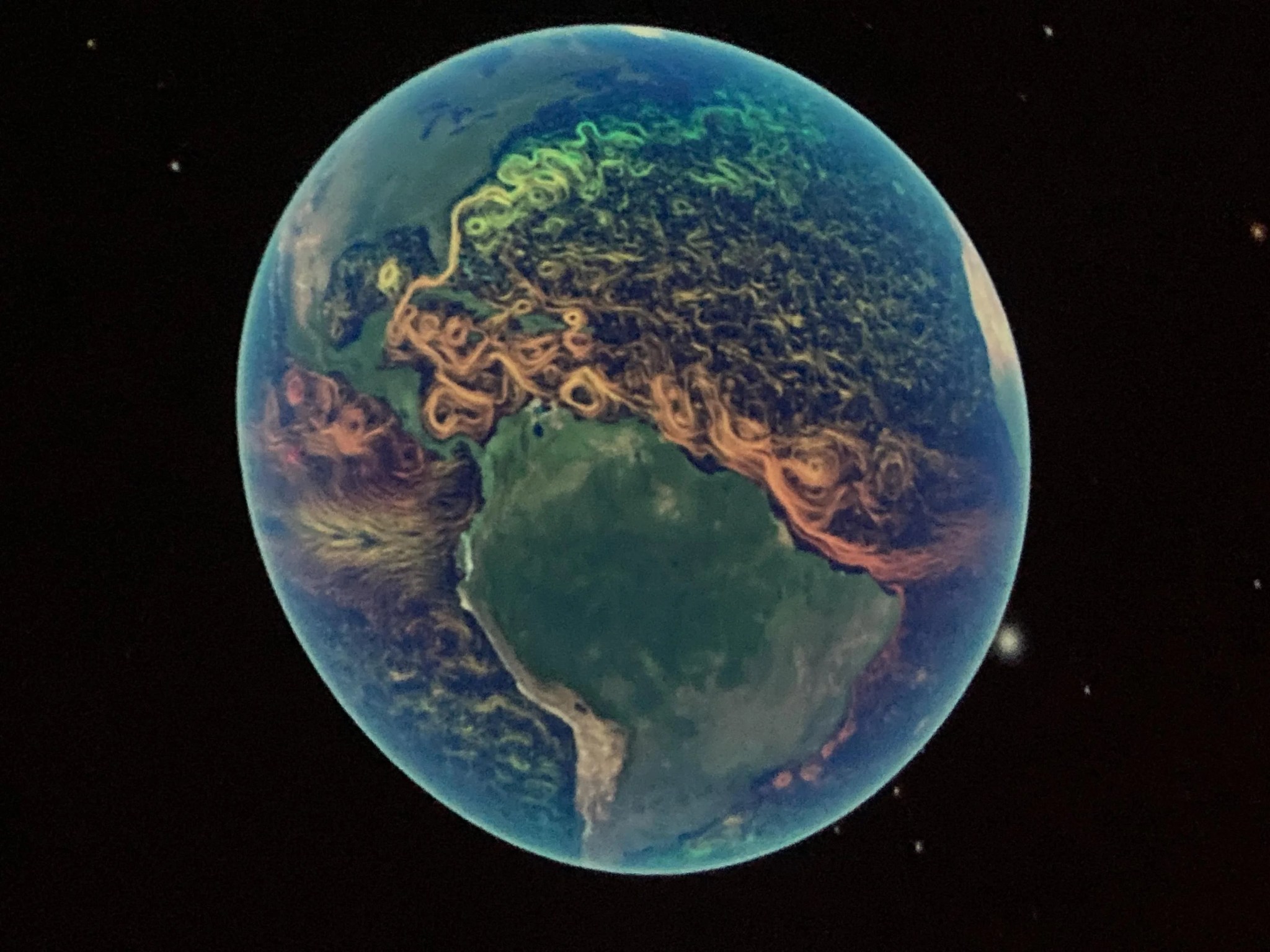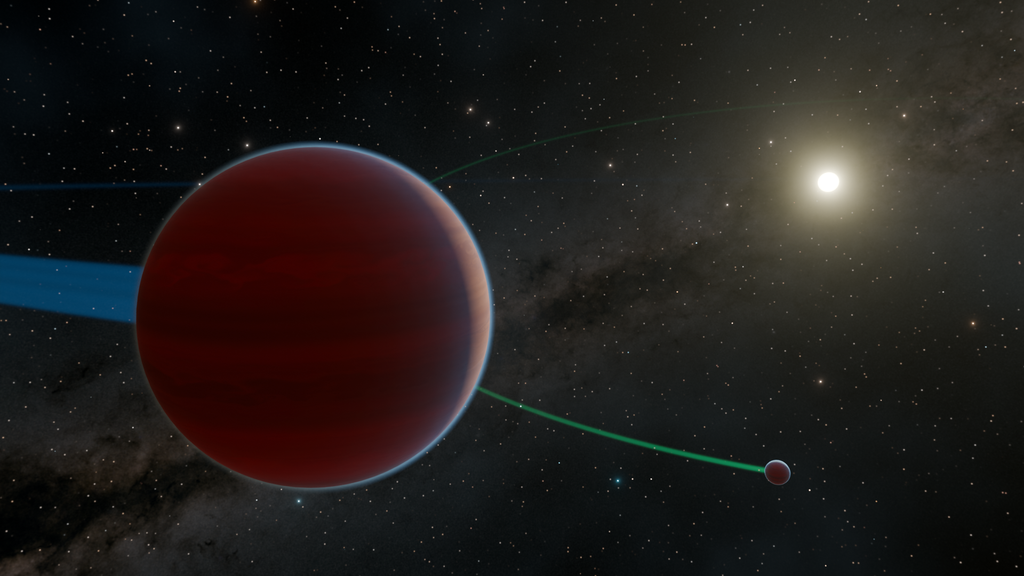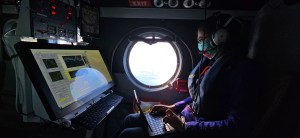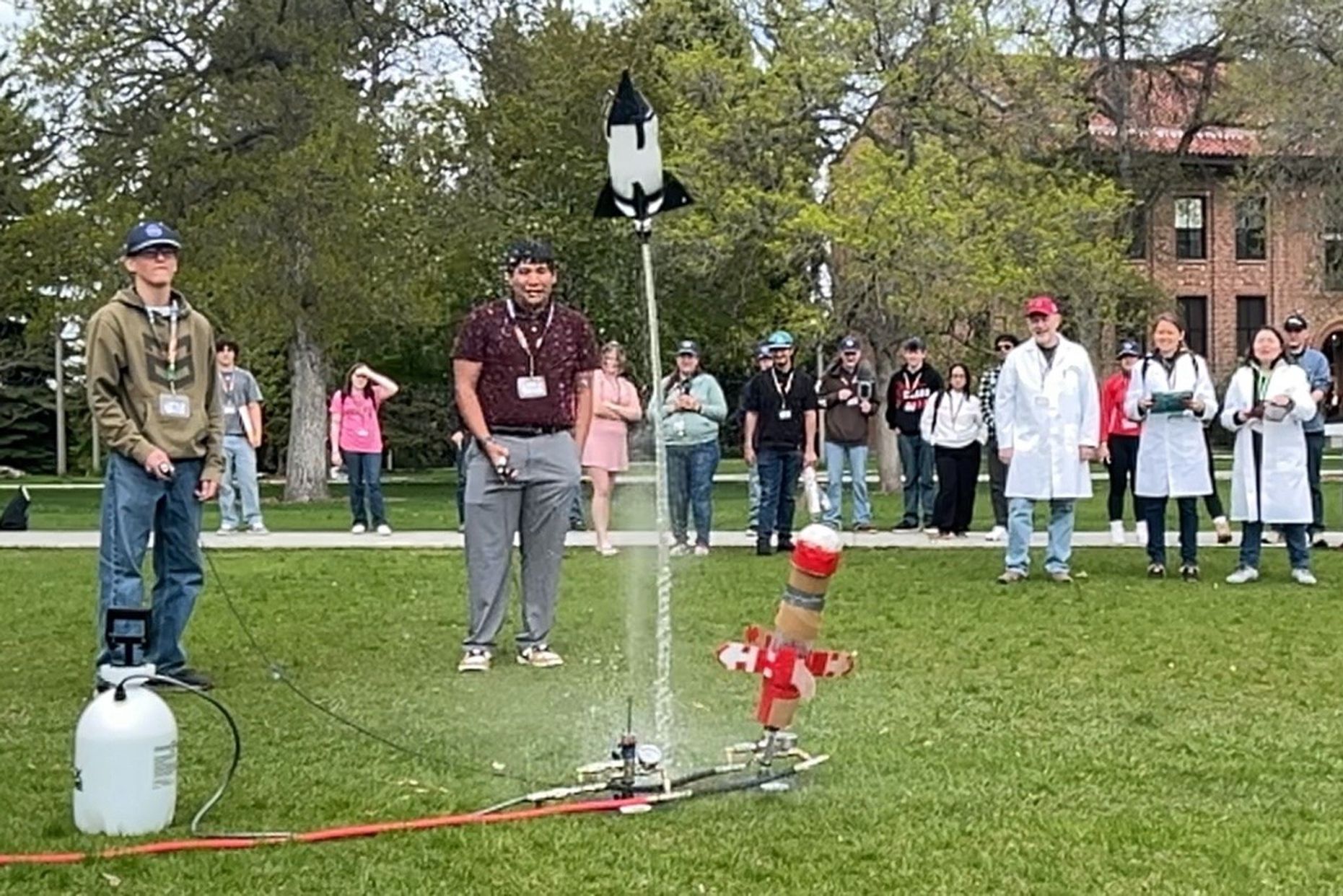Putting Climate Dynamics on the Dome
With the help of several NASA Science Activation teams, seventy-five planetarium professionals considered the affordances and challenges of the planetarium as a place to engage audiences in learning experiences regarding climate and climate dynamics. The Mid-Atlantic Planetarium Conference (held this year from May 18-20, 2022) brings members together annually for professional development around the art and science of communicating science on the dome. This year’s conference, hosted by the Versant Astronomy Center and Planetarium at the University of Maine in Orono, featured a collaboration between OpenSpace (based at American Museum of Natural History) and the Learning Ecosystems Northeast project (based at the Gulf of Maine Research Institute, GMRI) to take on the challenge of telling the story of the impacts of ocean warming.
GMRI’s Senior Research Scientist, Dr. Kathy Mills, used the shifts in lobster and black sea bass populations in the Gulf of Maine to illustrate one general category of climate story – species range shift and expansion – that is particularly suited to presentation on the dome. The OpenSpace and GMRI teams (with support from experts at the NASA Scientific Visualization Studio) collaborated to gather and create visualizations that could help the assembled professionals think about how to tell their local stories on the dome. Participants were able to ask questions about the combination of local, regional, and global data that makes these stories tellable, as well as about the role of open source tools like OpenSpace in making it possible for planetariums to demonstrate the value of NASA science and data assets to local communities.
Planetariums, both large and small, allow us to explore the universe, and part of that is our home planet Earth. Climate Change is affecting our world and our own backyards in unprecedented ways. As planetarians, we have unique capabilities to inform our communities and strive to preserve our planet. – Shawn Laatsch, Director, Versant Astronomy Center and Jordan Planetarium, Conference Host
The Learning Ecosystems Northeast and OpenSpace projects are supported by NASA under cooperative agreement award numbers NNX16AB94A and NNX16AB93A and are part of NASA’s Science Activation Portfolio. Please visit https://science.nasa.gov/science-activation-team/gmri and https://science.nasa.gov/science-activation-team/openspace-project to learn more.
https://mapsplanetarium.org/maps-conference-2022-orono-me/































